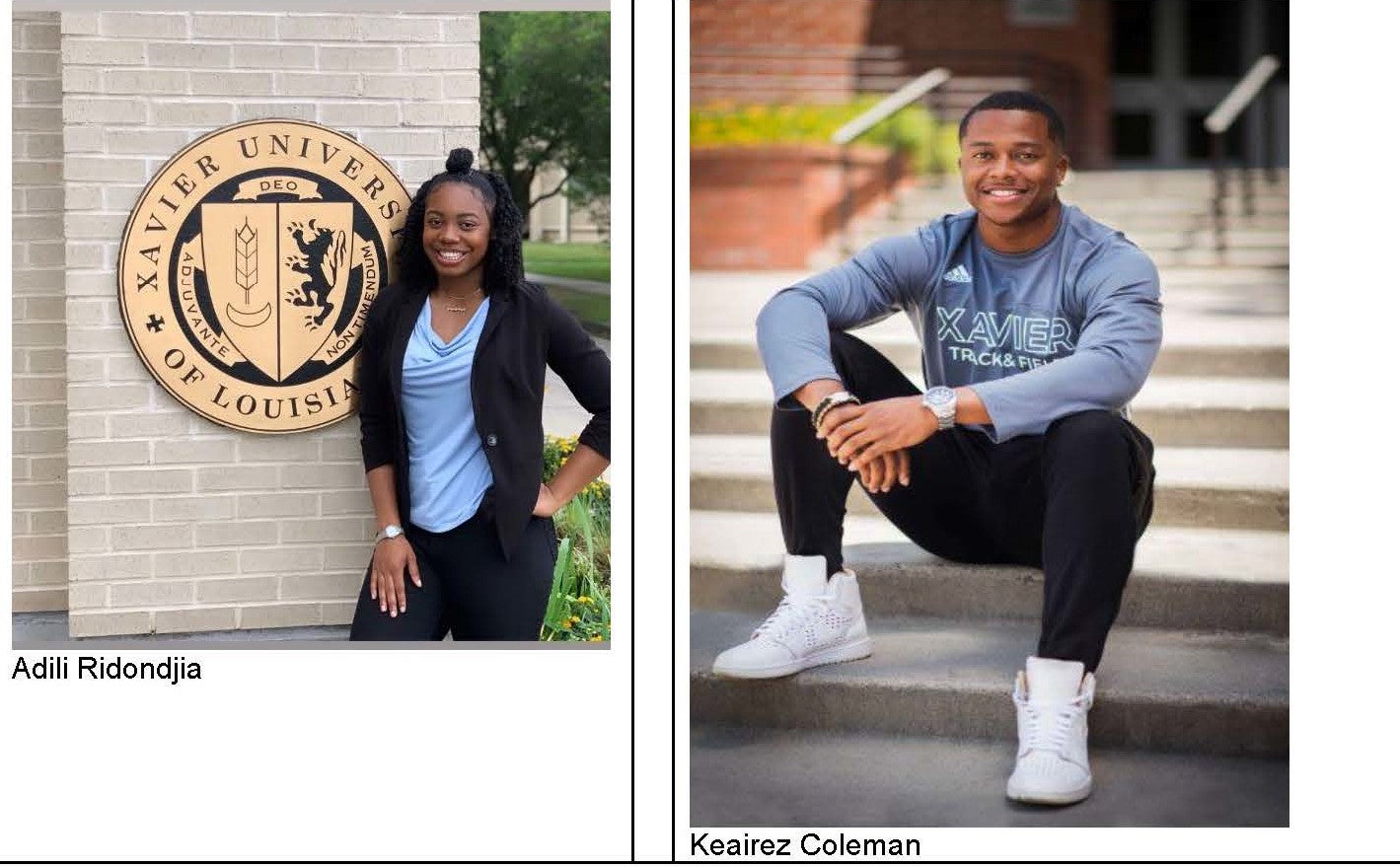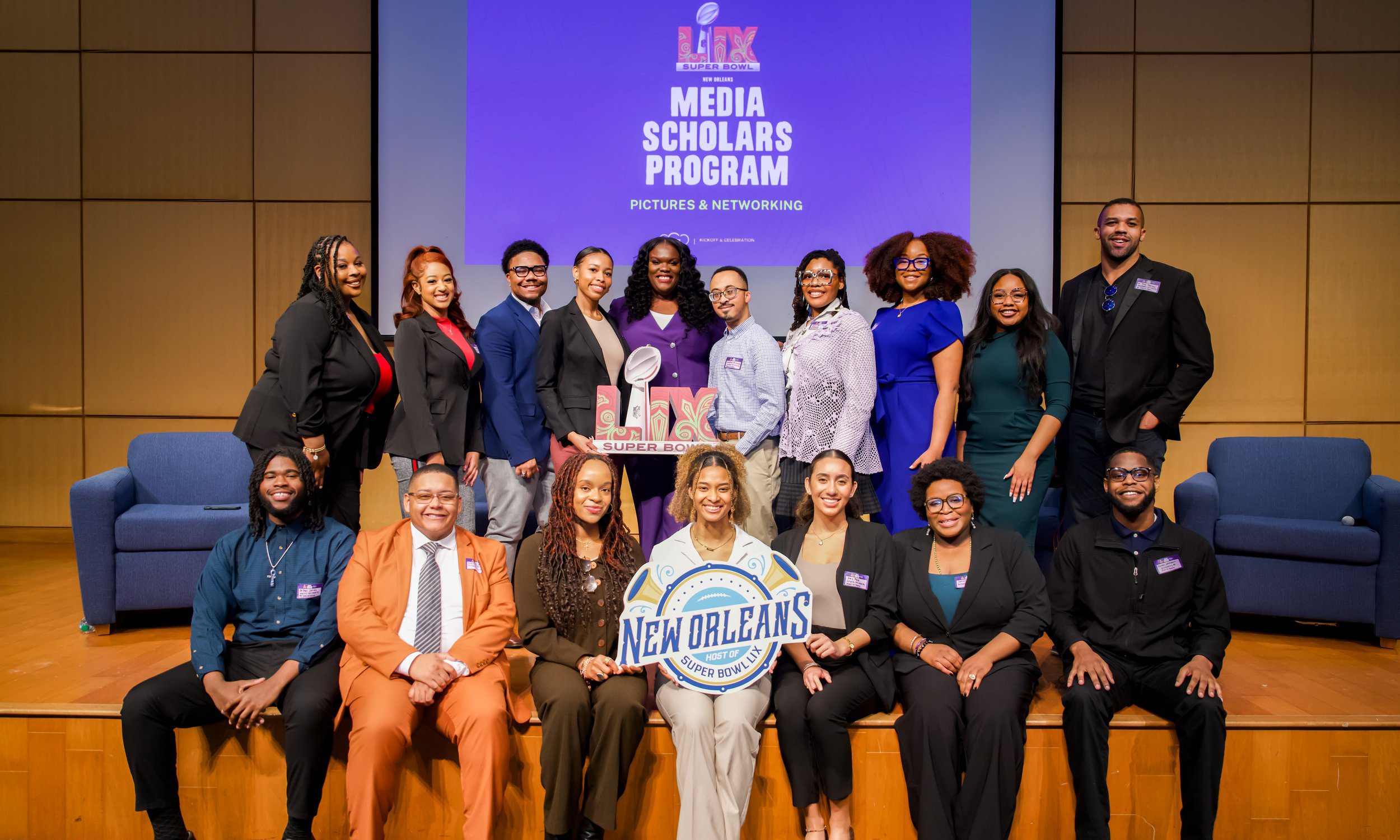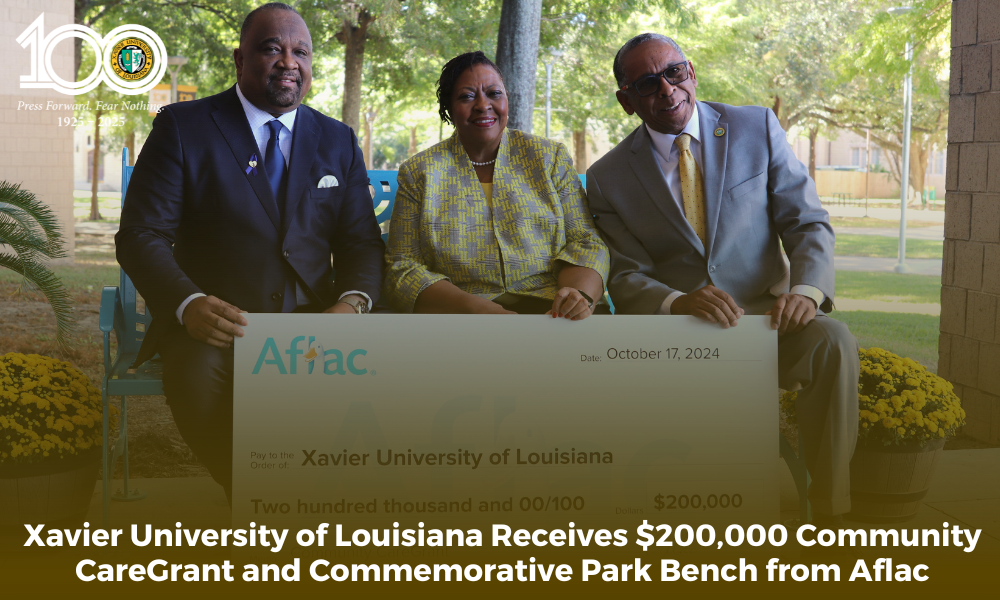Xavier, USC Join Forces To Promote Diversity In Physical Therapy Professions

New Orleans LA - The physical therapy profession has a diversity problem. Even as the U.S. population grows ever more diverse, the profession’s racial demographics have remained relatively unchanged. Today, nearly 80 percent of all practicing physical therapists are white, according to the U.S. Bureau of Labor Statistics.
That’s a problem the University of Southern California's Division of Biokinesiology and Physical Therapy and Xavier University of Louisiana aim to tackle, thanks to a new partnership between one of the nation’s top-ranked physical therapy programs and one of the nation's top historically black colleges which is designed to create a pipeline for XULA students to complete their prerequisite courses, gain valuable hands-on experience and develop mentoring relationships with their future USC faculty members.
“We ultimately want our profession to represent our patient population in every facet,” said Instructor of Clinical Physical Therapy Terry Richardson II, himself a 2008 XULA graduate who helped forge the unique partnership. “We specifically wanted to partner with XULA because they have been No. 1 in the U.S. for placing African-American students in health professional schools for well over 20 years.” “We’re looking for creative, innovative ways to bring greater diversity to physical therapy,” Richardson serves as a faculty adviser for the Physical Therapy Multicultural Leadership Alliance at USC.
Last summer, Xavier senior Keairez Coleman, a biology major from Harrisville MS (Mendanhall High), helped pave the way for the then-prototypical partnership by attending a summer program at USC as a McNair Scholar, a federal program designed to increase the number of graduate students from underrepresented backgrounds. Coleman has been accepted into USC’s Doctor of Physical Therapy (DPT) program, beginning this fall.
Coleman has since passed the program baton to another XULA student, Adili Rikondjia, a junior psychology/premed major from Inglewood, CA (Culver City High), who will head to USC for an eight-week visit this summer, helping to further flesh out the fledgling program. Eventually the two schools hope to enroll as many as five to seven students in the program each year.
“My hope is that, thanks to this partnership, more Xavier students will include physical therapy while thinking about careers in health care,” said Xavier Provost and Senior Vice President of Academic Affairs Anne McCall. “In the process, they will further diversify this important profession and help us fulfill our mission of contributing to a more just and humane society.”
Under the new program, XULA students can apply to USC’s Early Assurance Program (EAP) during the spring of their sophomore year. To be eligible, they must be committed to a physical therapy career, and have at least a 3.2 overall and science GPA. USC invites the most qualified candidates to interview on campus the summer before their junior year, taking into consideration their academic performance, background, diverse experiences and perspectives, leadership potential, maturity, strong letters of support and a passion for service. Once accepted, the students will begin receiving mentorship and individualized attention from USC faculty members to help them maintain academic success and become leaders in their field. They will also be offered summer opportunities to gain research and clinical experience.
“This partnership will create room for learning opportunities that can’t be found in a textbook,” said Richardson, “which is why partnerships like these are so important in higher education.”
After graduating from Xavier, EAP students will be admitted to USC’s DPT program as long as they have maintained their 3.2 GPA, finished all the program’s prerequisite courses, and completed a minimum of 150 hours of clinical experience in a physical therapy setting.
Like Coleman before her, Rikondjia hopes to be yet another building block for the program.
“I hope to serve as a role model for other Xavier students interested in the field,” said Rikondjia. “I have two mentees at Xavier who will be eligible in 2020 to be part of the actual first class to participate in the program. It means the world to me to know that I have paved the way for other deserving students.”
Rikondjia first became interested in physical therapy after suffering an ankle injury during volleyball practice in high school. Thanks to treatment she received at Kaiser Permanente, she was back out on the court a year later, getting recruited by colleges.
After high school, Rikondjia found herself back at Kaiser Permanente, this time working in the Kaiser Permanente Summer Youth Employment Program.
“It was meaningful to shadow and learn from the same physical therapists who rehabilitated me back to good health,” she said. “I appreciated their empathy, wide realm of knowledge and enthusiastic attitudes toward their profession.”
It was during this internship that Rikondjia got advice from someone else who blazed a trail for African Americans: Renee Rommero, the first African American to graduate from USC’s post-professional doctor of physical therapy program.
“On my last day, she told me that I had the potential to accomplish anything I set my mind to,” recalled Rikondjia. “Representation is important. When I finish school, I hope that my presence in the field will inspire other minorities to pursue physical therapy as a profession.



